Teachers concerned over COVID-19 safety as schools reopen, new cases are reported
"I was heartbroken," said one teacher who has resigned due to COVID-19 fears.
Nancy Shively, a lifelong educator in Oklahoma, says she’s always loved teaching. But with the coronavirus still raging and schools around the country beginning to reopen, she resigned from her job last week to protect herself and her family.
Shively has spent the last few years teaching special education. She said it’s been “rewarding” helping students to develop their strengths and overcome their weaknesses. After starting a job at a new school in the Skiatook Public Schools district last year, she’s disappointed she won’t be back to greet the second graders who are now entering third grade. Her school started in-person classes on Monday.
“I was really looking forward to it, and I have to finally come to the decision that I can’t [go back],” Shively told “Nightline.” “I was heartbroken. My children are grown but my daughters in particular asked me not to go back. And I lost my own mother when I was 30, and that’s about the age they are now and I don’t want them to go through that ... the choice became, do I resign to protect myself and my kids or do I keep going because I want to help my students?”
In her 60s and dealing with underlying health conditions, Shively said the potential exposure to COVID-19 at school not only puts her at risk but also her husband at home, who she says is also susceptible to the virus.
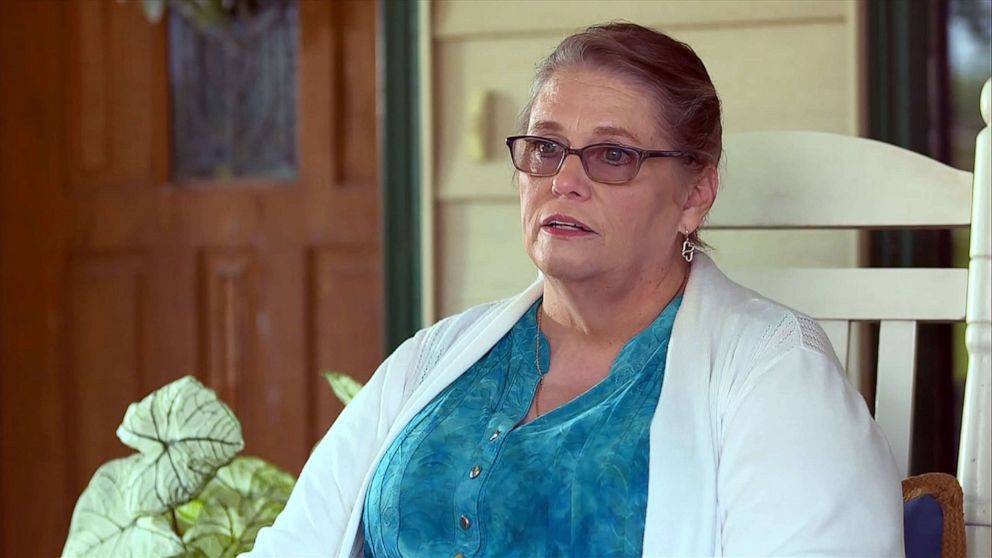
Shively’s concern is one shared by many students, parents and teachers as safety issues in some schools begin to emerge. At North Paulding High School in Dallas, Georgia, where in-person classes started last week, images of its packed hallways between classes went viral on social media. On Saturday, a letter received by one of the parents and provided to ABC News said six students and three staff members at the high school had tested positive for COVID-19.
Tiffany Robbins' daughter, Elyse, goes to Sequoyah High School, which faced similar criticism after a photo surfaced of students not wearing masks or social distancing on the first day of classes. She said she wasn't surprised by the North Paulding image. As an English teacher who returned to work last week at Dean Rusk Middle School in Cherokee County, Georgia, she says the excitement of being back at school turned into stress and anxiety by the end of the week.
“We are happy to be face to face. We’re happy to be in the building,” Robbins, who is also the president of the Cherokee County Teachers Association, told “Nightline.” “But we don’t feel like we can guarantee the safety of our students -- the safety of our coworkers.”
Robbins said “it took a lot of soul searching,” but she chose to go back to school because she loves to teach. “And if this is the only way I can do it in this county, at this point in my life, then I have to go back into the classroom,” she said.
She also updated her will and looked into life insurance “because I am worried,” she explained.
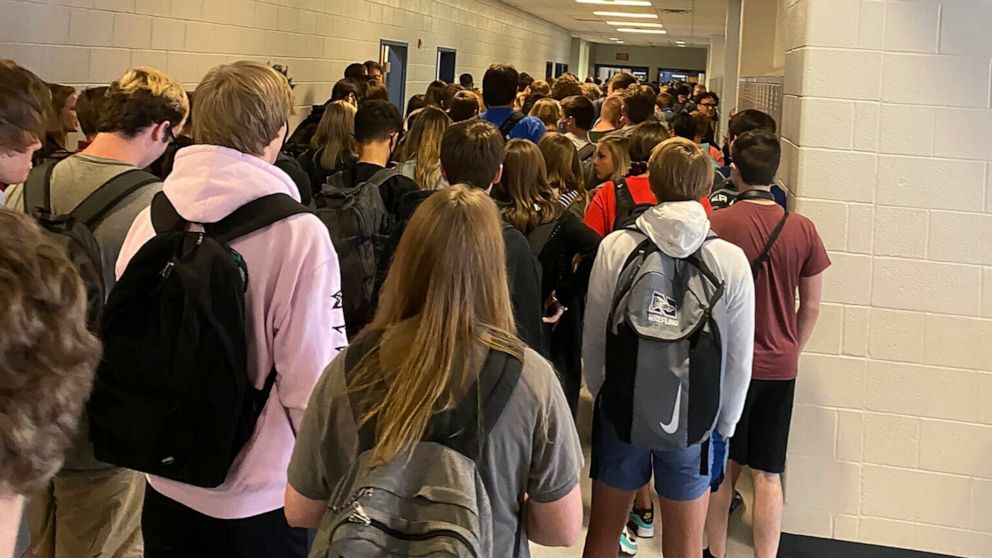
Georgia saw a record number of COVID-19 deaths over the weekend even as new cases and hospitalizations have started going down. In the Cherokee County School District, more than 250 students and staff have been quarantining after at least 11 students and two staff members tested positive for COVID-19.
In her community, Robbins says one of the challenges she faces is that some parents don’t believe the virus is real.
“There are many students across the county who come in declaring to their teachers that their parents don’t believe in COVID,” Robbins said. “There are parents who’ve reached out to me to express their dislike of my requests for a safe school. Across the board, there are people who believe in science and there are people who don’t believe in science, and having a conversation between the two is almost pointless. We’re not going to change each other's minds.”
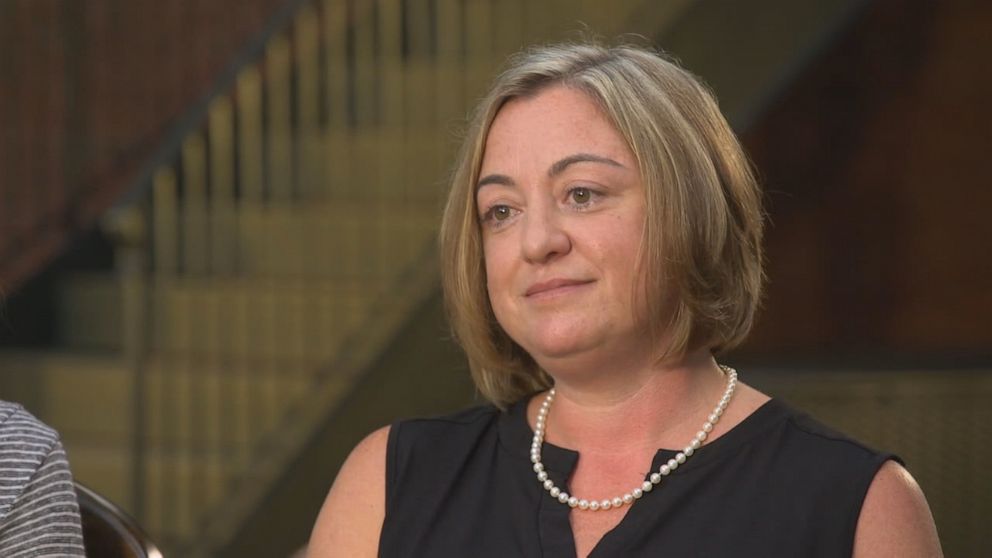
Robbins said she can have between 25 and 35 students in each of her four classes, or about 120 students a day. At the middle school level, many of these students then go on to different classes, “not really moving together as a team,” she noted.
She said that even with several precautions in place, like making hand sanitizer, cleaning supplies and masks available, the risk of exposure to the virus is still there.
“Every day you leave your house and you walk into the building, you’re exposing yourself to hundreds and hundreds of students who are exposing themselves to multiple people when they’re outside of school,” Robbins said.
Dibett Lopez, a language arts teacher in Gwinnett County, Georgia, says she’s feeling a lot of anxiety about returning to school. Classes in her county are scheduled to begin on Wednesday, first through virtual learning until Aug. 26 and then by phasing in students for in-person learning thereafter.
Lopez said even this plan is risky for her and her family. She lives in a multigenerational home with her grandfather, her parents, her children and her sister’s family, and she’s also a Type 1 diabetic.
“For Type 1 diabetics, fevers can impact our blood sugar," she said. "It can put us in different ranges with our blood sugar, it can mess with our insulin and the production of our insulin and our hormones. And so, all of that can mess with how medicine comes into us.”
Lopez said that like her, many of her students live in multigenerational homes, and she’s concerned her students may become asymptomatic carriers and inadvertently pass the virus on to someone in their families.
“Gwinnett is the most diverse county in all of Georgia, and so I have students from last semester who live with grandparents or live with aunts and uncles or live with extended families,” she said. “So I know that multigenerational homes are definitely going to be impacted. I know that they were impacted in the spring, so I can only imagine when schools reopen in the fall.”
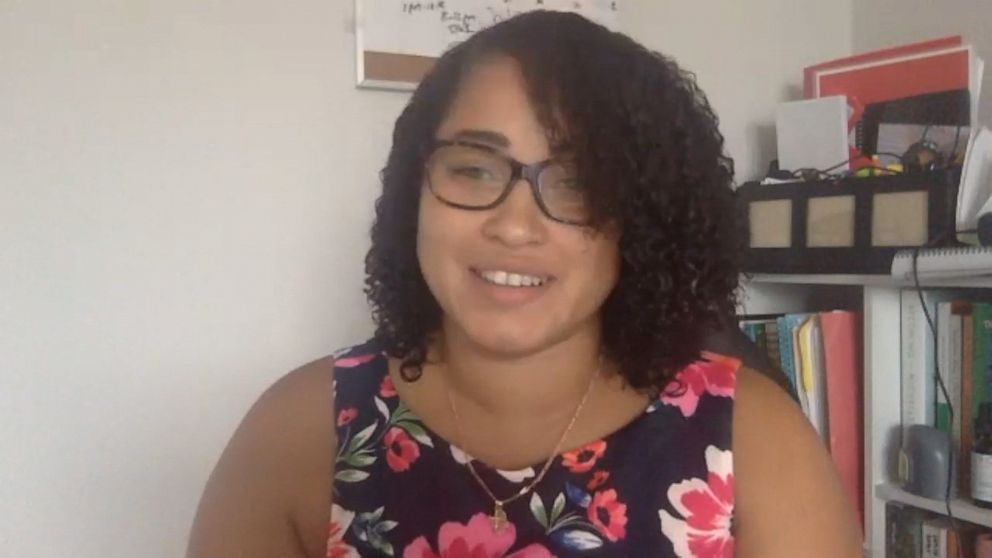
When students return to school, Lopez said she expects them to face “a lot of confusion and chaos” as they try to adjust to the new protocols. Like Robbins, she said her classes have upwards of 36 students.
“There’s just no way that I’m not going to be within 3 [feet], 2 feet of a student,” she said. “You know, even if I wore a face shield and both of my masks, I’m still going to be in direct contact with those students.”
Lopez also said “there’s nothing else we would rather do” than teach students in-person. But she said teachers shouldn’t be placed in a position where they’re risking their own health or that of their students, some of whom may also have underlying health conditions.
“We are still in a pandemic. We’re still in crisis mode. We’ve just learned how to handle it better,” she said. “And so, I think it’s important to tell parents this is about our community. This is about making sure that we are all OK, because I can’t deliver a lesson if I’m constantly thinking about, ‘Oh my God, are they getting too close?’”
Shively said she’s concerned for younger teachers, who aren’t at the end of their career and don’t have the option to resign. In an op-ed she wrote for USA Today, she called out President Donald Trump and the federal government as well as local governments for what she says is failed leadership.
“It’s like a cascade of failure of leadership, starting with our president who abdicated his responsibility to handle the pandemic,” she told “Nightline."
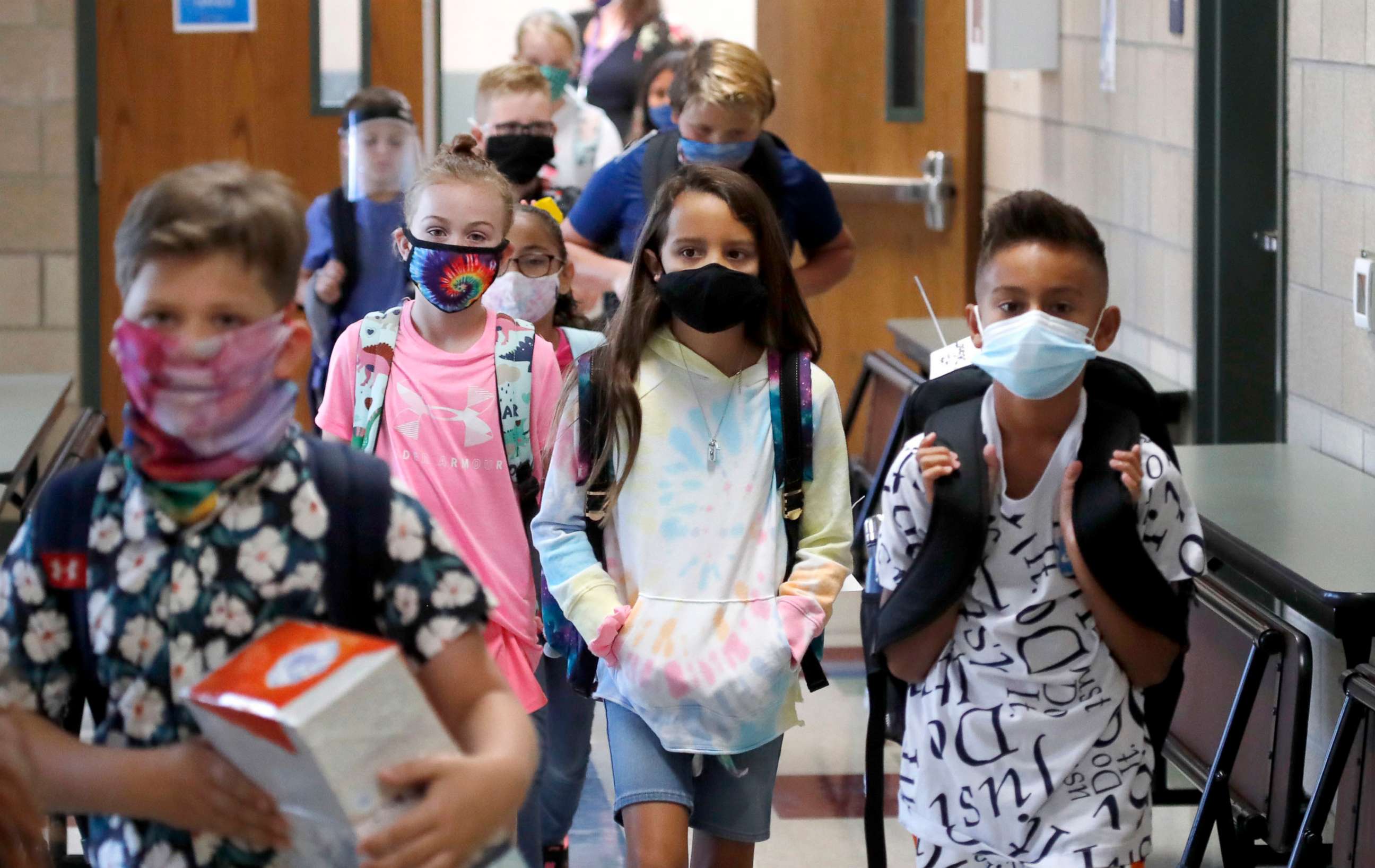
“I’m not willing to take the consequences for these failed leaders by risking my life in school,” she added.
Shively said she doesn’t “see how they are going to avoid outbreaks in schools.”
“I think what we’re doing is conducting this big experiment with schools reopening,” she said. “And the people who are gonna pay the price are the teachers and children, and it’s wrong.”




